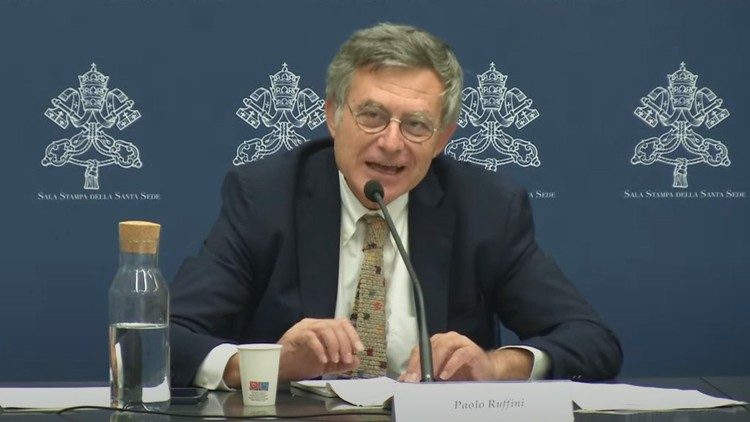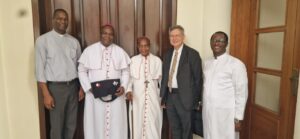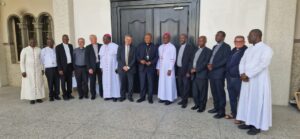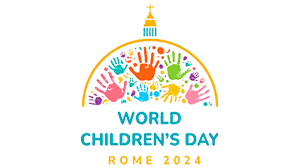CEPACS NIGERIA: Communication, a Call to Strengthen Relationship: Vatican Official at Opening Mass of CEPACS at 50

Dr. Paolo Ruffini Vatican’s Prefect of the Dicastery for Communication
Sr. Jecinter Antoinette Okoth, FSSA
At the opening Mass to mark the Golden Jubilee celebration of the Pan African Episcopal Committee for Social Communications (CEPACS) in Lagos, Nigeria, the Vatican’s Prefect of the Dicastery for Communication said the art of communication is a call for all humanity to strengthen relationship and communion.
“Communication is not just a matter of media practitioners or formation but much more: It is a gift God gave us human beings created in his image to be in relationship with one another, to build a community and weave communion among us to communication,” Dr. Paolo Ruffini said while addressing congregants at Holy Cross Cathedral Sunday, November 19, stressing that “At its most profound level, communication is the giving of self in love.”
According to the Vatican Official, Christ’s communication was Spirit and life, and when the Holy Eucharist was Instituted, “Christ gave the most perfect and intimate form of communion between God and man possible in this life and out of this, the deepest possible unity between man.”
With this backdrop, therefore, CEPACS is not only to celebrate 50 years of existence since its establishment in 1973 in Ibadan, Nigeria, “but also to search together the ways to move towards a more Christian style of communication that mirrors the Church’s communion and contributes to it.”
The committee of CEPACS was established to help and represent the continent on matters that concern the media and engagement with the communication world. At the same time, this committee was an initiative of the Symposium of Episcopal Conferences of Africa and Madagascar (SECAM) as a response to the Vatican’s document Communio et Progressio (the pastoral instruction on the means of social communication) that was released at the direction of the Second Vatican Council, meant to deepen understanding of the teaching and spirit of the Council and guide Christians in their attitudes to the media after the publication of Intermerifica; a document addressing the concerns and problems of social communication.
Dr. Ruffini during his address on Sunday stated that the Intermerifica which was propagated ten years before the establishment of CEPACS, “openly attests that the Church enjoys the capacity to connect the outer life with the interior life; action with contemplation, apostolate with prayer.”
The Vatican official also complimented the ongoing efforts being made in the communication field at all levels in Africa, “mostly the flourishing of radios, and TV stations wherever they are operating; in the Church the family of God, on the continent, abroad, and online,” and further appealed to all God’s people to support the efforts through prayers and commitments.
“There are many ways we can offer support, each one of us can contribute to making our communication a service of communion,” Dr. Ruffini said and added, “I encourage you to support each other and spread awareness for the care of these gifts that God gave us to build relationships. Together we can witness our being members of one another through the radio, the web, and social media and we can build a system with the mission of feeding the word with truth based on the experience of Pentecost interwoven with the spirit of sharing.”
 Speaking under the theme for the Golden Jubilee celebration, “CEPACS AT 50: towards promoting a synodal church in Africa through Social Communications,” Dr. Ruffini said, “As the synodal way of being a Church needs to be cultivated, our communication needs to be cultivated in order to be real at the service of the Church family of God.”
Speaking under the theme for the Golden Jubilee celebration, “CEPACS AT 50: towards promoting a synodal church in Africa through Social Communications,” Dr. Ruffini said, “As the synodal way of being a Church needs to be cultivated, our communication needs to be cultivated in order to be real at the service of the Church family of God.”
Emphasizing that young people should not be left behind the Communication’s Prefect said, “Let us engage our youth in our communication system, let the message travel from person to person as something beautiful because it is true, … Let us invent new ways of person-to-person communication that is based on communion instead of division communion among us, communion of people of God-communion of the family of God in Africa and in all the world.”


